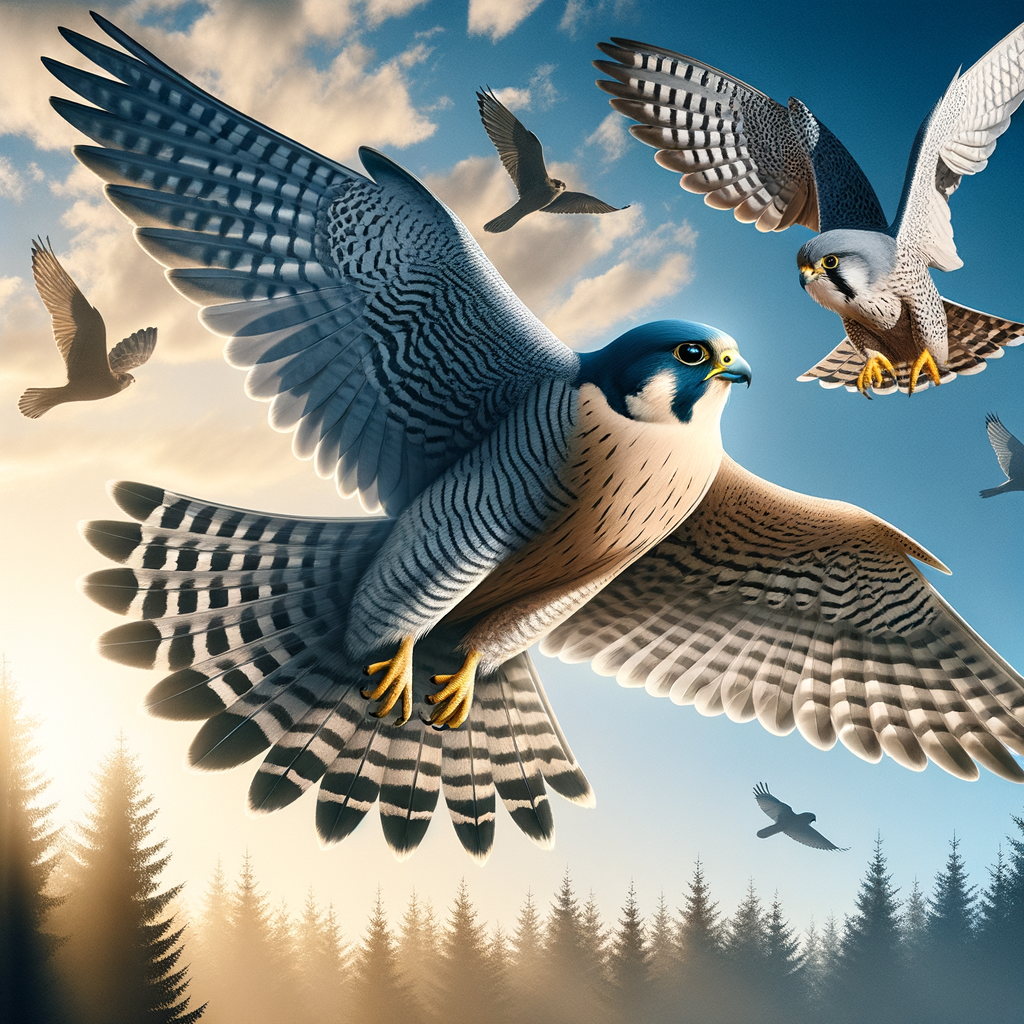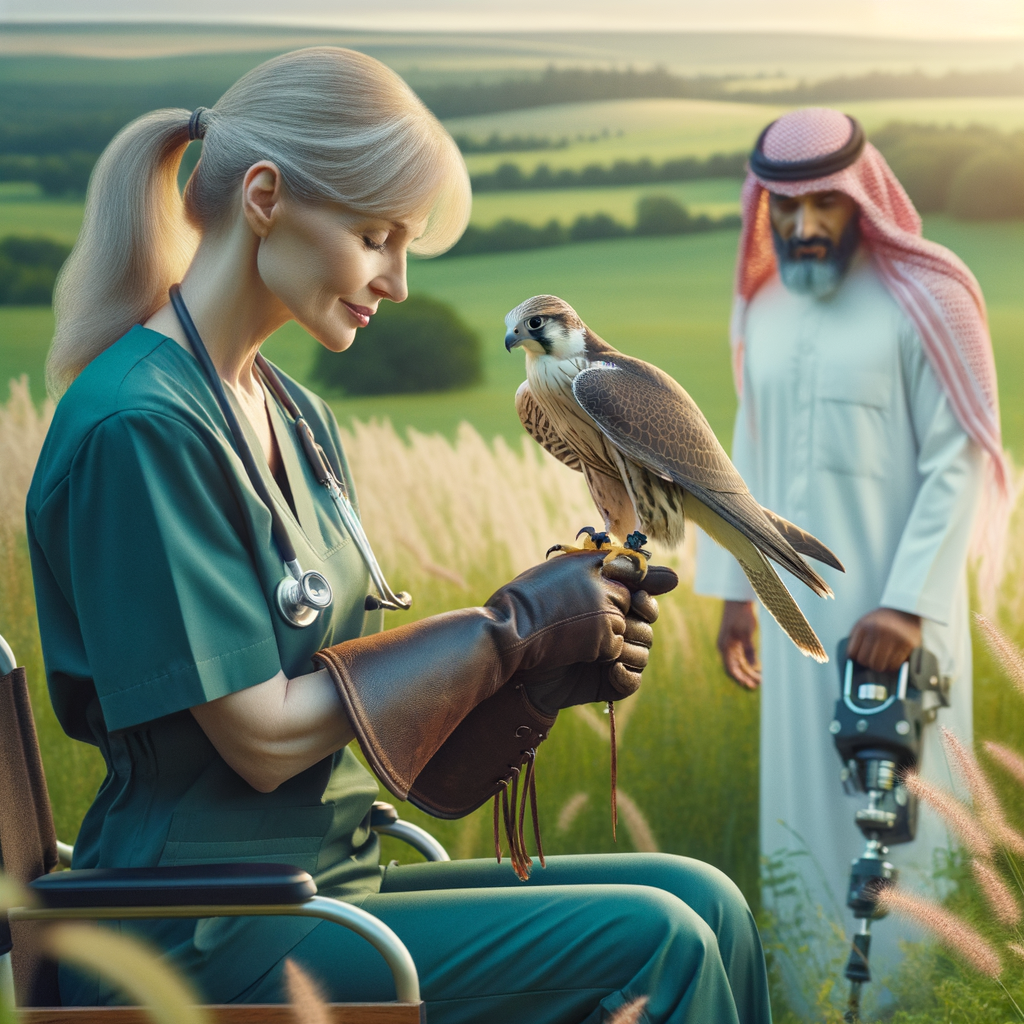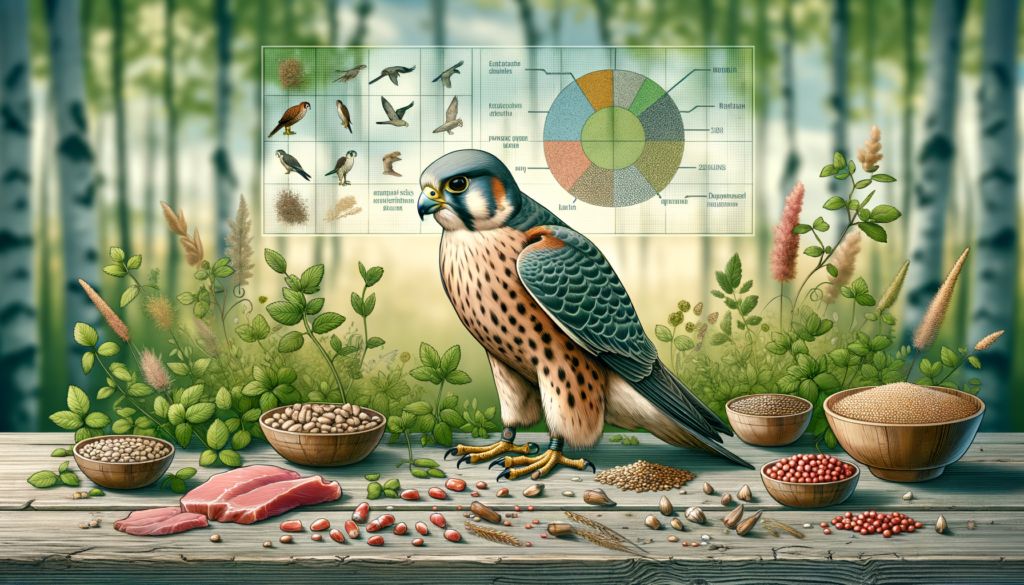Key Insights About Hybrid Falcons
What are Hybrid Falcons?
- Hybrids are falcons created by breeding two different species.
- They combine traits from both parent species, resulting in unique characteristics.
Why are They Special?
- Hybrids often exhibit extraordinary skills in hunting.
- They can adapt to various environments better than purebred falcons.
Features of Hybrids
- They have diverse plumage, showcasing mixed colors and patterns.
- Hybrids can be more resilient in challenging weather conditions.
Training Hybrid Falcons
- Requires patience and understanding of their mixed traits.
- It’s crucial to build trust and establish a strong bond with them.
Benefits of Hybrid Falcons
- Enhanced agility and speed thanks to the combined genetics.
- Often possess a higher intelligence and better problem-solving abilities.
Caring for Hybrids
- Proper diet and health monitoring are essential.
- Regular training and mental stimulation are necessary for their well-being.
Conclusion
- Hybrid falcons are incredible birds that offer unique advantages.
- They are a testament to innovative breeding and the wonders of nature.
Discovering the Magic of Hybrid Falcons
Hybrid falcons are the remarkable result of crossing different species of falcons, creating birds that display the best qualities of their parents. Whether it’s their incredible speed, agility, or unique appearance, each hybrid brings something special to the skies. But why should you care about these feathery marvels? Well, keep reading this article, and you’ll uncover the fascinating story behind these birds, understand their importance in the world of falconry, and get a glimpse into the efforts to conserve these incredible creatures.
Just like that journey to the pot of gold, delving into the world of hybrid falcons promises excitement and surprise. Let’s explore together and take flight into this captivating adventure!
Exploring the Fascinating World of Hybrid Falcons
Hybrid falcons, also known as falcon hybrids, are a thrilling part of modern falconry. Created by crossbreeding two different species of falcons, these birds combine traits from both parents, offering unique and often superior characteristics. Whether you are new to hybrid falconry or a seasoned falconer, the world of hybrid falcons is full of excitement and wonder.
What Are Hybrid Falcons?
A hybrid falcon is bred by mixing different species of falcons. This process results in unique birds that often showcase the best qualities of both parental species. Falcon hybrids can exhibit enhanced performance, greater resilience, and unique appearances, making them highly sought after in the falconry community.
Benefits of Hybrid Falcons
One of the main advantages of using hybrid falcons in hybrid falconry is their combination of desirable traits. For instance, a hybrid might possess the speed of a peregrine falcon and the strength of a gyrfalcon. This makes hybrid falcons particularly effective for hunting, competitions, and exhibitions. Additionally, hybrid falcons can be more adaptable to different environments and climates, expanding the places where falconry can be enjoyed.
Training and Handling Hybrid Falcons
Training hybrid falcons involves specialized techniques that consider the unique genetic makeup of the bird. Falconers need to understand the behavioral traits of both parent species to effectively train their hybrid falcon. This can involve a combination of basic training techniques, positive reinforcement, and advanced conditioning programs. For more insights on training techniques, you can visit our pages on basic training techniques and advanced training methods.
Equipment for Hybrid Falconry
Just like any falconry practice, having the right equipment is crucial for hybrid falconry. Specialized equipment, such as falconry hoods, leashes, and telemetry systems, can ensure the safety and effectiveness of your training sessions. You can explore various types of equipment through our guides on falconry equipment and custom falconry equipment.
Legal Aspects of Hybrid Falconry
Understanding the legal requirements for hybrid falconry is essential for any practitioner. Regulations may vary depending on where you live, so it’s important to be familiar with licensing requirements and international regulations. For this reason, checking our pages on falconry licensing requirements and international falconry regulations can provide valuable information.
Health and Nutrition for Hybrid Falcons
Ensuring your hybrid falcon receives proper health care and nutrition is vital. Understanding their dietary needs, recognizing signs of good health, and providing regular health check-ups are essential practices. For detailed information on maintaining the health of your falcon, visit our resources on common falcon health issues and preventative health care for falcons.
Conservation and Ethical Considerations
Hybrid falcons also play a role in conservation efforts. Breeding programs and reintroduction projects can benefit from the unique traits of hybrid falcons. However, it’s crucial to follow ethical considerations in falconry to ensure the welfare of these magnificent birds. Learn more about the role of ethical falconry and conservation efforts in falconry.
Conclusion
The world of hybrid falcons is filled with endless learning opportunities and experiences. From understanding the benefits and training of hybrid falcons to exploring the legal and ethical aspects, there’s so much to discover. Embrace the journey into hybrid falconry and experience the unique blend of tradition and innovation that it offers. Dive deeper into the topic with more resources from Learn Falconry.
Exploring Hybrid Falcons: Knowledge and Innovations
Falconry is an ancient art that has continually evolved. One fascinating aspect is the rise of hybrid falcons. Hybrid falcons are the result of breeding different species of falcons. They are preferred by many enthusiasts for their unique characteristics and abilities.
Egg Laying Patterns
In 2024, hybrid falcons were noted for their early egg-laying behaviors. The first egg was laid on March 11, making it the earliest recorded date since monitoring began in 2004. This early laying is a significant development. Since 2004, over 80 eggs have been laid at the monitoring site.
| Year | First Egg Laid | Number of Eggs Laid |
|---|---|---|
| 2004 | April 3 | 5 |
| 2010 | March 23 | 6 |
| 2016 | March 15 | 9 |
| 2020 | March 25 | 10 |
| 2024 | March 11 | 12 |
| Total | ‘ | 80 |
Role in Conservation and Forensics
Hybrid falcons play a crucial role in conservation and forensic sciences. Cross-amplification is a technique used to test genetic variability in pure species and hybrids. This helps scientists understand the populations better and their interactions, which is vital for conservation efforts.
Genetic Analysis for Diversity
Ongoing genetic analysis, particularly of Saker Falcon subspecies, aims to understand their diversity. This research can lead to more effective conservation strategies, ensuring these magnificent birds are protected for generations to come.
Nesting Success of Peregrine Falcons
Studies have shown that Peregrine Falcons, known to hybridize with other species, have a stable population in Iowa. The 2023 nesting report revealed a higher percentage of successful nests compared to previous years. On average, 1.92 young were produced per nest, showcasing the robustness of these hybrid falcons.
| Year | Percentage of Successful Nests | Average Young per Nest |
|---|---|---|
| 2018 | 70% | 1.50 |
| 2019 | 75% | 1.60 |
| 2020 | 72% | 1.65 |
| 2021 | 74% | 1.78 |
| 2022 | 76% | 1.80 |
| 2023 | 78% | 1.92 |
Hybrid Falcons in Modern Falconry
Hybrid falcons are increasingly popular in modern falconry for their adaptability and performance. They often exhibit:
- Higher Speed: Result from combining the traits of parent species.
- Greater Resilience: Ability to withstand various environmental conditions.
- Unique Appearance: Distinct features from both parents.
Falconers appreciate these hybrids for their hunting capabilities and the challenges they present.
Study these aspects to understand how hybrid falcons are shaping the future of falconry and conservation efforts today. This knowledge not only deepens our appreciation for these birds but also highlights their significance in heritage and modern practices.
The Future of Hybrid Falcons: Key Insights
Hybrid falcons have shown fascinating developments in recent years, marking significant advancements and contributions in the field of falconry. For instance, in 2024, these remarkable birds have been recorded laying eggs earlier than usual, with the first egg laid on March 11, an unprecedented occurrence since tracking began two decades ago. This early nesting behavior highlights the dynamic nature of hybrid falcons and their adaptability to changing environments.
Furthermore, hybrid falconry is not just an exciting practice but also plays a crucial role in conservation efforts. Techniques like cross-amplification help scientists understand genetic variability in both purebred and hybrid species. This research aids in developing effective conservation strategies for falcons, ensuring their populations thrive.
Additionally, recent genetic analysis of Saker Falcon subspecies sheds light on their diversity, leading to more informed conservation approaches. Peregrine Falcons, known for their ability to hybridize, have shown stable and successful nesting trends, particularly highlighted in Iowa, with improved nesting success rates in 2023.
In summary, the study and practice of hybrid falconry offer invaluable insights and benefits. Whether for conservation, genetic understanding, or simply the joy of observing these magnificent birds, hybrid falcons continue to enrich the world of falconry with their unique attributes and behaviors. Stay tuned to witness how these birds will continue to shape the future landscape of falconry.



